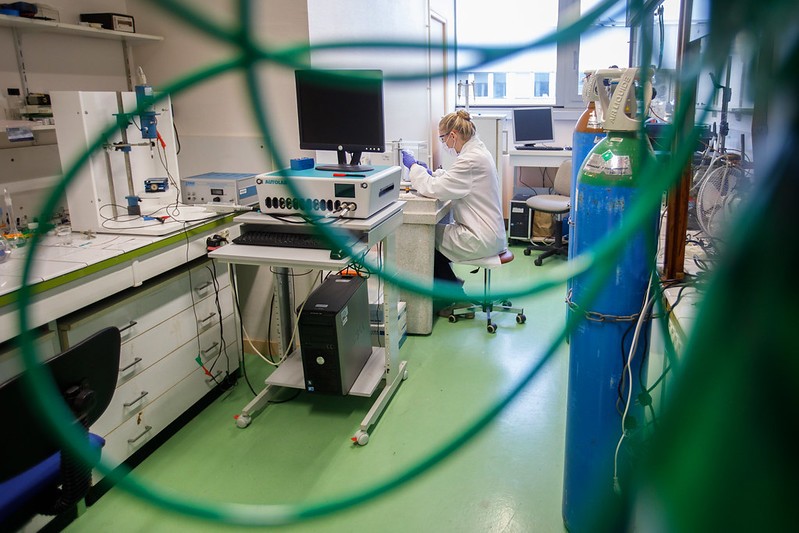- Home
- Department of Chemistry
- Research Areas
- Organic Chemistry and Biological Interfaces
- Sensors and Probes For Health and The Environment
Sensors and probes for health and the environment
Sensors have become the basic building block in most everyday objects (telephones, vehicles, etc.) and in most professions (medicine, agriculture, production, etc.). Their principle is based on the measurement of a physical quantity (pressure, temperature, light signal, etc.) or on a specific interaction with a molecule (biomedical diagnostics, gas detectors, etc.). The Chemistry Department's teams are working on the development of new sensors in fields ranging from gas detection to pathogens. They are also interested in the development of high-performance probes for biomedical imaging and the development of high-performance, rapid diagnostic tools accessible to the greatest number of people.
1. Fluorescent and plasmonic biochips on silicon
2. MOF thin films for gas detection
3. Luminescent nanocrystals as biological probes and ROS sensors
4. Polarized luminescence rare-earth-doped oxide nanosticks for microfluidic and biofluidic tomography
5. Detection of nanoparticles by microelectrode collisions
6. Core-shell Au@MOF nanostructures for gas detection by exalted Raman Spectroscopy
7. Multimodal nanopipette-based imaging and analysis platform to explore brain communication
8. Toxic gas sensor based on 2D materials
9. Design of 3D polyfunctional micro- and nanostructured architectures as sensitive materials for gas- and liquid-phase sensing devices

Faculty contacts
| Catherine Henry de Villeneuve (subject 2) | Anne-Chantal Gouget (subject 1) |
| Thierry Gacoin (subjects 3 et 4) | Aleix Guell (subjects 6 et 7) |
| Jong Wook Kim (subject 4) | François Ozanam (subject 1) |
| Fouad Maroun (subject 6) | Christophe Renault (subject 6) |
| Michel Rosso (subject 2) | Gaël Zucchi (subjects 8 et 9) |
 Support l'X
Support l'X